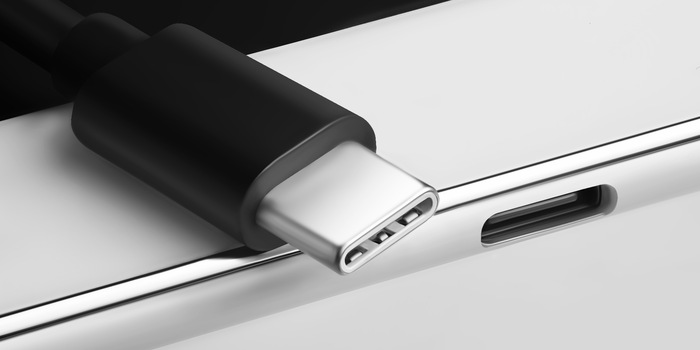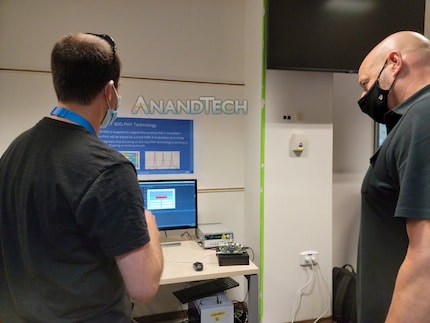
Thunderbolt 5? Intel executive accidentally leaks info about 80 Gbps connection.
One of Intel’s execs shared and quickly deleted a photo on Twitter. The image seemed to suggest that a 80-Gbps cable transmission standard might be here soon. This could well be the Thunderbolt 5.
Gregory M. Bryant is the executive vice president and general manager of the Client Computing Group at Intel. Surely an interesting job with exciting insights. It was one of these insights that he recently shared on his Twitter account. In his post, he revealed details about a new USB or Thunderbolt standard that Intel is presumably working on – it’s likely that this was done unintentionally. The picture has been taken down since then.

Source: Deleted tweet from Gregory M. Bryant, Intel Corporation
The picture shows Gregory visiting an Intel research and development facility in Israel. There’s a poster on the wall that reads «80G PHY Technology», possibly referring to an upcoming 80 Gbps cable transmission standard. That would be double the bandwidth of Thunderbolt 4 with its 40 Gbps. PHY stands for physical interface. The next line reads «USB 80G is targeted to support the existing USB-C ecosystem». In other words, the new port will be backwards compatible and use the previous USB-C or Thunderbolt port.
The third line on the poster explains how doubling will be possible: «The PHY will be based on novel PAM-3 modulation technology». PAM-3 is a pulse amplitude modulation that provides two transmission channels with three states each. So far, Thunderbolt has been using non-return-to-Zero (NRZ) as the performance code.
Right at the bottom it says «??? N6 test-chip focusing on the new PHY technology is working in ??? showing promising results», followed by two graphs. The N6 test chip with its new PHY technology is expected to deliver promising results in a lab environment. Presumably in one of TSMC’s labs. After all, the Taiwan Semiconductor Manufacturing Company offers N6 node technology.
I find my muse in everything. When I don’t, I draw inspiration from daydreaming. After all, if you dream, you don’t sleep through life.